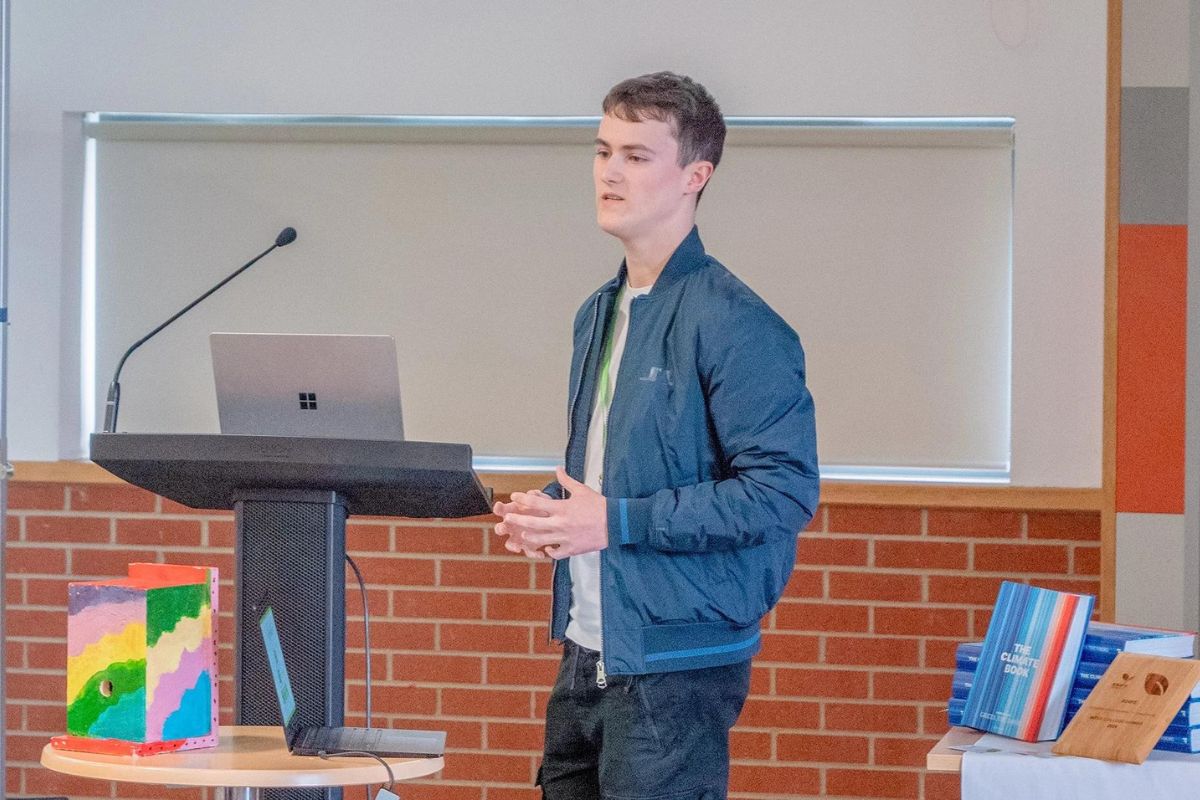Research identifies critical role of college sector in tackling poverty challenges

A new report published today by College Development Network (CDN) and Colleges Scotland, through CDN’s Research and Enhancement Centre, highlights the central role that Scotland’s colleges play in tackling poverty and in creating a more inclusive society.
Pathways from Poverty: Current Challenges and the Role of Colleges highlights the vital position of colleges as anchor institutions in local communities, providing a focal point not just for education but for community engagement and action in relation to poverty.
The report shows that Scotland’s 26 colleges each played a crucial part in the nation’s pandemic response – providing students with digital devices, access to learning spaces for vulnerable students, and additional student support funding throughout the pandemic. The report draws attention to the need for colleges to continue their support for students at a time when the cost-of-living crisis and generational poverty continue to harm the chances of students reaching their full potential.
Commissioned by think tank IPPR Scotland, the research highlights the essential function of colleges in driving educational and career progression for some of the country’s most disadvantaged students. Colleges offer educational and vocational opportunities to young people from some of the poorest communities in Scotland, proactively working with schools to address the school attainment gap – that is, the difference in achievement between Scotland’s poorest and richest young people.
Understanding the significant and detrimental impact that poverty has on children’s life chances, colleges already provide practical solutions to the challenges of deprivation faced by many of their students, including digital poverty, period poverty and food poverty.
Concerns around finance and digital poverty were high on the wellbeing agenda for colleges through the pandemic and tackling digital poverty became an even greater priority as restrictions forced learning online. Many colleges reported increasing provision of laptops and dongles through lending schemes or financial help through discretionary funds. South Lanarkshire College repurposed laptops previously used for classroom learning to significantly expand availability to students through their lending scheme. Edinburgh College’s Learner Development Tutors were quick to identify students in need and make appropriate referrals to colleagues for funding.
The report highlights that during the pandemic a number of colleges moved quickly to ensure free sanitary products were available to students, even while learning moved to online provision. Ayrshire College, City of Glasgow College, Edinburgh College and South Lanarkshire College all moved provision to online providers such as Hey Girls and Girl Post (a new project based in Skye), to ensure period poverty could be tackled throughout the pandemic.
Many colleges provide free and subsidised meals to ensure their students have access to healthy food and minimise the stigma associated with poverty. Dundee and Angus College provides its catering outlets with an annual subsidy of £200k to ensure that homemade soups, sandwiches, hot pasta and rice dishes, salads and fruit, are available and affordable. Kitchen facilities have been installed at each campus where students can access microwaves and hot water, allowing them to heat up their own food or make hot beverages. All students receive a ‘fuel up for free’ card at the start of the new academic year that entitles them to one free, healthy meal per week from one of the college’s catering outlets for the first six weeks of term.
Jim Metcalfe, Chief Executive of College Development Network, said:
“Around a third of college students in Scotland come from the 20% most deprived postcodes in the country, and Scotland’s colleges are the first port of call for many young people affected by poverty. It’s clear that the next few years will be challenging for the communities that colleges serve, but these will continue to develop their important role as regional anchor institutions.
“More than 40% of university entrants from the most deprived postcodes first went to college. However, this new report shows that the critical role colleges play in their communities goes far beyond the courses they provide. From food, finance and technology to mental health and wellbeing support, there are many examples of the impact that colleges make on young people’s lives and success.
“We look forward to leading conversations with the college sector that will flow from this report to maximise the potential of all our students, and to drive change in Scotland’s economy.”
Lydia Rohmer, Principal and Chief Executive, West Highland College UHI and Board Member of Colleges Scotland said:
“Students have had a really challenging time during the pandemic, showing huge resilience to finish their studies and gain the qualifications they worked so hard for during lockdowns, disruption, and periods of isolation.
“Poverty, including digital poverty, is an acute issue for a significant number of college students, many of whom come to college to improve not just their own opportunities but to provide a more stable, brighter future for their families. We know poverty can really impact detrimentally on the ability of students to learn and thrive while undertaking their studies.
“This report highlights the good work colleges are doing now, and we look forward to more in-depth discussions around the potential of colleges to support pathways out of poverty for students across the country.”
Casey Smith, Researcher at IPPR Scotland said:
“IPPR Scotland is pleased to have prepared this report, the most in-depth report of its type involving colleges across Scotland. It aims to understand the role colleges had prior to the pandemic, and the crucial role many colleges took on during the peak of the crisis, to begin to understand the role that colleges in Scotland will need to take in tackling poverty post-pandemic.”
Read the full report here: https://bit.ly/povertycdn












Responses